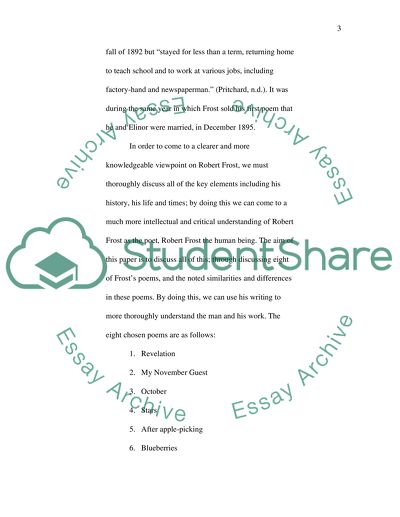Cite this document
(“Reflection of Robert Frost's Life in His Poems Research Paper”, n.d.)
Reflection of Robert Frost's Life in His Poems Research Paper. Retrieved from https://studentshare.org/literature/1501638-robert-frost-essay
Reflection of Robert Frost's Life in His Poems Research Paper. Retrieved from https://studentshare.org/literature/1501638-robert-frost-essay
(Reflection of Robert Frost'S Life in His Poems Research Paper)
Reflection of Robert Frost'S Life in His Poems Research Paper. https://studentshare.org/literature/1501638-robert-frost-essay.
Reflection of Robert Frost'S Life in His Poems Research Paper. https://studentshare.org/literature/1501638-robert-frost-essay.
“Reflection of Robert Frost'S Life in His Poems Research Paper”, n.d. https://studentshare.org/literature/1501638-robert-frost-essay.


